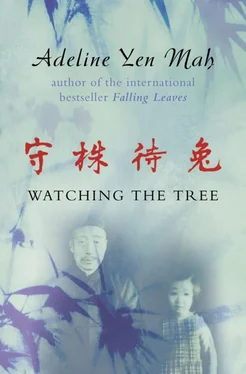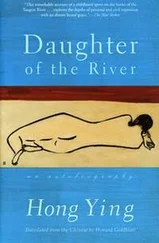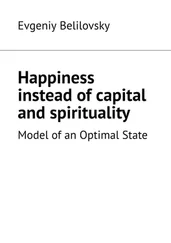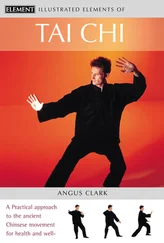In my first book, Falling Leaves , I reported my Aunt Baba’s words when we were reunited after a separation of thirty years.
‘The way I see it [she said], the nineteenth century was a British century. The twentieth century is an American century. I predict that the twenty-first century will be a Chinese century. The pendulum of history will swing from the yin ashes brought by the Cultural Revolution to the yang phoenix arising from its wreckage.’
Having lived and worked as a physician in California for thirty years, I consider myself Chinese-American and am very fond of my adopted country. My aunt, however, was born in 1905 and still saw the world through lenses moulded by China’s humiliations during the two preceding centuries. From the dawn of history, we Chinese had regarded China as the centre of the world, and considered every other nation to be barbaric. In 1842 China lost the Opium War and Hong Kong was ceded to Britain. Subsequently China endured 150 years of foreign exploitation and coastal cities such as Shanghai and Tianjin came under foreign control. My grandparents, parents and aunt were all born in the French Concession of Shanghai, where they were ruled by Frenchmen under French law and lived as second-class citizens in their own native city. Perhaps as a consequence, my grandfather, aunt and father used to view all westerners with a mixture of awe and resentment.
After Sun Yat-sen toppled the imperial Qing dynasty in 1911, China became a republic. The country soon broke up into fiefdoms ruled by warlords, who fought the Japanese as well as each other for control. Chiang Kai-shek, a military general and protege of Sun Yat-sen, united the country after Sun’s death but was forced to escape to Taiwan when he lost the civil war to the Communists under Mao Zedong in 1949. Mao drove out the foreigners along with the Nationalists, proclaimed the founding of the People’s Republic and, on 1 October 1949, declared from the Gate of Heavenly Peace in Beijing that ‘the Chinese people have finally stood up for themselves’, meaning that China was no longer subject to foreign rule.
From 1949 until his death in 1976 Mao was essentially China’s one-man dictator. My aunt compared him to Qin Shi Huang Di, the ‘terracotta army’ emperor who united China in 221 BC and whose power and cruelty were legendary. Under Mao’s reign, love of the motherland was the highest virtue on earth. In its name rested sanctity, salvation and a purpose of life. Nationalism replaced Confucianism, Taoism and Buddhism as the Chinese people worshipped at the altar of Mao. China remained isolated, backward and undeveloped for the twenty-seven years under Mao’s rule. The Cultural Revolution (1966–72) was unleashed by Mao to topple his enemies and to free the country of the ‘four olds’ – habits, customs, ideals and creeds. Instead, it wiped out all traditional codes of beliefs and produced a bewildered generation of Red Guards. Even today, there are those within China who preach xenophobia, isolationism, protectionism and resistance to modern market policy. A case of Maoism versus the Disney-fication of China.
Following the break-up of the Soviet Union, the USA is the only superpower left on the world arena today. The dominance of America stems primarily from a philosophy of private enterprise that underpins its economic, educational and political systems. Although China is the world’s most populous country, with 1.3 billion people, it is only one of many ascending nations jockeying for position. Asian countries such as Japan, Korea, Malaysia, India and Pakistan have all undergone industrialisation and modernisation within the last fifty years. Our whole world is already a fusion of east and west; around the globe we are becoming ever more closely linked by ties of environment, security, trade and information. It is now vital for all our futures that we gain an understanding of each other’s history, language and culture.
When I was thirteen years old, my stepmother informed me that I was to leave my school in Hong Kong the following year and get a job because my father could no longer afford my school fees. Desperate to get further education, I confided to my grandfather Ye Ye that I was considering running away secretly to join my Aunt Baba back in Shanghai. Would he consider lending me the fare?
‘What will you do in Shanghai?’ he asked.
‘Go back to my old school. I can’t wait to see all my old classmates again. When my parents took me away from my Shanghai school three years ago, I had just been elected class president. Do you think they will still let me be class president when I go back?’
Grandfather looked at me with a peculiar expression. ‘So you think everything in Shanghai will be exactly the same as when you left? How childish you are! Have you forgotten again what it says over and over in the I Ching ? The only thing that does not change is that everything changes.
‘Let me tell you a story that I hope you’ll never forget. Once there was a boy who was told by his master to catch a hare. He went into the woods and looked around. Lo and behold, at that very moment, he saw a hare running along at full speed. As he watched in astonishment, the hare ran smack into a tree and knocked itself unconscious. All he had to do was to pick it up. For the rest of his life the boy waited behind the same tree in the hope that more hares would do the same thing.
‘That boy is like you, expecting the same conditions to be waiting when you return to your school in Shanghai. Watching the tree to catch a hare (  sho zhu dai tu )!’
sho zhu dai tu )!’
That was one of the last conversations I had with my grandfather. He died a few months later.
Did my grandfather make up this story? No. Who wrote it? A philosopher named Han Fei Tzu  . When did he live? Over 2000 years ago. He died in 233 BC.
. When did he live? Over 2000 years ago. He died in 233 BC.
After the publication of Falling Leaves many readers wrote to ask me: ‘Given the fact that China was so much more advanced than other civilisations up to the time of Marco Polo (Yuan dynasty – 1260–1368), why did it fall behind the west from then on?’
There are many theories put forward to explain China’s decline. Mine is very simple and is based on one word: education. In the chapter on Confucius I discuss how, for over 2000 years, the sole purpose of education in China was to study the works of Confucius so as to pass the imperial civil examinations and become a magistrate. The study of astronomy ( tian wen  ) by the general public was restricted because only the emperor (and his appointees at the Bureau of Astronomy) had the right to study the stars. The importance of mathematics in the study of science was never recognised in Imperial China. Mathematics was considered a waste of time since it did not help one to pass the examinations. Potential Chinese Keplers, Galileos and Newtons were busy memorising Confucian texts. Mathematical language based on the Hindu-Arabic numerical system was not generally adopted until the twentieth century. During my father’s youth in the twenties and thirties calculations were still being carried out on the abacus because Chinese numbers (like Roman numerals) lack two essential elements: zero and position , both of which are implied on the abacus but become invisible when the numbers are transcribed on to paper in Chinese characters. Without an adequate numerical alphabet, mathematical thought could not advance and science could not develop.
) by the general public was restricted because only the emperor (and his appointees at the Bureau of Astronomy) had the right to study the stars. The importance of mathematics in the study of science was never recognised in Imperial China. Mathematics was considered a waste of time since it did not help one to pass the examinations. Potential Chinese Keplers, Galileos and Newtons were busy memorising Confucian texts. Mathematical language based on the Hindu-Arabic numerical system was not generally adopted until the twentieth century. During my father’s youth in the twenties and thirties calculations were still being carried out on the abacus because Chinese numbers (like Roman numerals) lack two essential elements: zero and position , both of which are implied on the abacus but become invisible when the numbers are transcribed on to paper in Chinese characters. Without an adequate numerical alphabet, mathematical thought could not advance and science could not develop.
Читать дальше

 sho zhu dai tu )!’
sho zhu dai tu )!’ . When did he live? Over 2000 years ago. He died in 233 BC.
. When did he live? Over 2000 years ago. He died in 233 BC. ) by the general public was restricted because only the emperor (and his appointees at the Bureau of Astronomy) had the right to study the stars. The importance of mathematics in the study of science was never recognised in Imperial China. Mathematics was considered a waste of time since it did not help one to pass the examinations. Potential Chinese Keplers, Galileos and Newtons were busy memorising Confucian texts. Mathematical language based on the Hindu-Arabic numerical system was not generally adopted until the twentieth century. During my father’s youth in the twenties and thirties calculations were still being carried out on the abacus because Chinese numbers (like Roman numerals) lack two essential elements: zero and position , both of which are implied on the abacus but become invisible when the numbers are transcribed on to paper in Chinese characters. Without an adequate numerical alphabet, mathematical thought could not advance and science could not develop.
) by the general public was restricted because only the emperor (and his appointees at the Bureau of Astronomy) had the right to study the stars. The importance of mathematics in the study of science was never recognised in Imperial China. Mathematics was considered a waste of time since it did not help one to pass the examinations. Potential Chinese Keplers, Galileos and Newtons were busy memorising Confucian texts. Mathematical language based on the Hindu-Arabic numerical system was not generally adopted until the twentieth century. During my father’s youth in the twenties and thirties calculations were still being carried out on the abacus because Chinese numbers (like Roman numerals) lack two essential elements: zero and position , both of which are implied on the abacus but become invisible when the numbers are transcribed on to paper in Chinese characters. Without an adequate numerical alphabet, mathematical thought could not advance and science could not develop.










